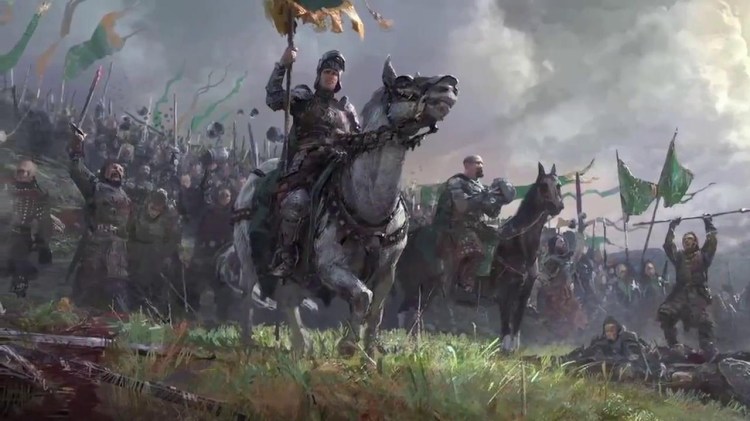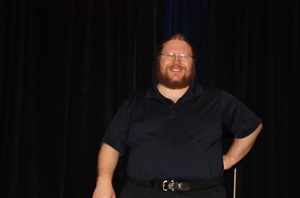Jon Radoff is carrying some heavy responsibilities these days. He has to keep fans of Game of Thrones and Star Trek happy, and he’s going to have to do it at the same time.
Radoff is the chief executive of Boston-based Disruptor Beam, the game studio that negotiated to get the license for Game of Thrones before it took off as an acclaimed series on HBO. His team toiled on its social game based on the franchise and finally debuted Game of Thrones Ascent on Facebook in early 2013. By that time, Game of Thrones and the “A Song of Ice and Fire” book series were enormous hits. Radoff’s social mobile title has been played by 9 million people, and his team is continuously updating the game to keep fans happy.
The group is also working hard on creating a new Star Trek game, dubbed Star Trek Timelines. That project will let you command a starship with an all-star crew. That is, you’ll be able to select crew members from any of the Star Trek properties. The launch date isn’t set yet for Star Trek Timelines, but Disruptor Beam has fueled up for it, raising a round of money for the purpose.
We caught up with Radoff at the recent Game Monetization USA Summit in San Francisco. Here’s an edited transcript of our talk.
GamesBeat: What’s your update on where things are with both of your big projects?
Jon Radoff: The big thing we did over the last year was bringing Game of Thrones to multiple platforms. We created more social activity around alliances and the whole alliance war that’s going on in the game. That’s been good for us. We’re now hitting 9 million installs on the product. It’s a very dedicated, loyal customer base.
The success story around Game of Thrones Ascent is the way we’ve been able to maintain the paying audience. We have 54 percent lifetime retention of our paying customers. If you go back to February last year when we launched, 54 percent of all the paying customers we’ve ever gotten are still active within the last 30 days.
Getting there has required us to learn a lot of things, both in terms of managing the community, incorporating players into that process, and creating [a live events system] that engage them for not only daily type things, but over long courses of time.
GamesBeat: Is that the same across all the platforms?
Radoff: It is. It’s a cross-platform game. If you play on Facebook, you’re competing with people on Android and iOS. They all exist in one ecosystem together.
GamesBeat: I wondered if Facebook on the desktop is going to tail off at some point.
Radoff: Maybe it will for some people. Facebook has actually been very successful for us. We’re seven quarters in building the game, and this is the seventh quarter of consecutive growth on Facebook. I think that Facebook has been challenging for a lot of companies, but for us, because of orientation around the community, which has this foundation in the brand itself, we maybe have an easier time engaging people who are already on Facebook who love Game of Thrones and bringing them in.
For us, Facebook has been great. It consistently grows. It’s the most economic way for us to get customers if we want to do paid acquisition, although paid acquisition is a tiny portion of our customer acquisition. It’s mostly organic — people learning about it from their friends. I have no complaints about Facebook, although I know we may be unusual in that respect. I know a lot of original Facebook developers have moved off to mobile.
Mobile has been very successful for us too. We have more revenue on iOS than on Facebook now; iOS is our largest market. But Facebook still grows, and the lifetime retention of Facebook is a little bit stronger than on iOS. I think that’s because of the social-network effect. You’re playing with your friends, seeing what they do, engaging and talking about the game more frequently. Mobile devices can only retain the social community inside the individual product. Other than that, you’re dependent on things like the notification streams on the device, which aren’t super effective as a re-engagement tool compared to Facebook timelines.
GamesBeat: Is there a second-screen attraction here for some people?
Radoff: I’m not actually a big believer in second screen. I’m skeptical of that whole space.
GamesBeat: But you might do some updates related to the show that people are talking about the next day.
Radoff: Yeah, but I don’t see that so much as second screen. When people talk about second screen, they mean watching the show while holding their device and syncing up and looking at different things. For certain things, like sports or news, I can see that. For dramatic TV, if you’re a producer in that space, you want the viewer to be glued to the screen at every moment, not distracted by another device.
For us, I don’t see it as a second screen so much as continuity in the experience. People sit down and watch, say, an episode of Game of Thrones on their iPad using HBO Go. Then, the next thing they do is go into the game because as you just mentioned, whenever a new episode comes on the air, we’re putting new game content up the next day. It’s all related to the show you just watched. It’s about different ways you can experience Game of Thrones, but it’s not about the game you play at the same time you watch. That’s the piece I don’t believe in, at least for dramatic TV.
GamesBeat: The Telltale guys are launching their game. I wonder if that will have any overlap with your audience.
Radoff: Of course there will. We’ve had nine million installs, and some percentage of our customers are going to try any Game of Thrones product that comes along. There’s certainly overlap in the addressable market.
Their game and our game are similar in one respect, though, which is that they’re games that primarily appeal to Game of Thrones fans. That’s a huge market. We have 15 million-plus people watching the show. Plenty of those people want Game of Thrones games. Beyond that, they’re very different games. We have a strategy game about living the life of a lord within Westeros over a long period of time and interacting socially — or anti-socially — with other people. They’re about sitting down and playing through an immersive story, an adventure-game experience. Some people will play both, but they’re such different games that they aren’t really incompatible with each other in the marketplace.
GamesBeat: So it’s only a problem if there’s too much Game of Thrones out there. It seems like there’s not enough so far.
Radoff: We don’t appear to be in danger of too much Game of Thrones, no. If anything, people are hungry for more stuff. We may see, beyond Disruptor Beam and Telltale, one or two other games in the future in the Game of Thrones universe, but that’s still not a lot. As long as each game occupies a different place in the overall world, provides a different type of game people want to play, a different social engagement, a lot of these games are going to coexist.




